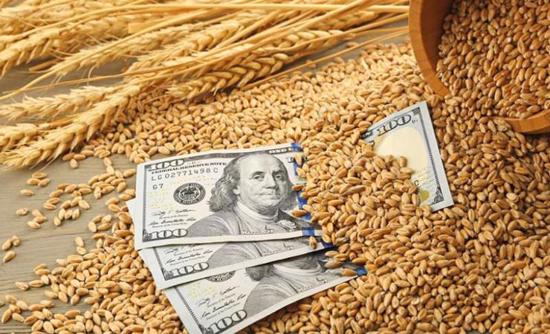Fiscal position is not the only indicator of the economy. Political circumstances and geopolitical conflicts also function as important indicators.
The Egyptian economy manifested great persistence against recent disruptions, especially the Covid-19 outbreak.
However, the Russia-Ukraine war has had its toll on the national economy, like it did everywhere else.
Last week, the Central Bank of Egypt raised the key interest rate by one per cent, for the first time since 2016, citing the global inflation induced by the Covid-19 pandemic and the Russian-Ukrainian war.
Simultaneously, the exchange rate of the US dollar rose against the Egyptian pound, selling at the nation’s banks for LE18.45 a dollar.
Also, the price of crude oil rose above $140 a barrel, the highest since the global financial crisis of 2008.
This rise is caused by the war in Ukraine as well.
Egypt’s budget deficit will rise by between 0.2 per cent and 0.3 per cent with every $10-dollar increase in global oil prices, according to the World Bank.
The Egyptian government estimates the price of crude oil at $60 a barrel in the 2021/22 budget.
The prices of butane gas cylinders for local consumers also rose against the backdrop of the rise in global oil prices.
The price of a gas cylinder increased by five pounds ($0.318), reaching LE75 ($4.77).
Egypt’s butane gas production amounts to two million tonnes every year, whereas its consumption exceeds four million tonnes.
The government has to bridge this gap between production and consumption through imports.
The rise in the price of butane gas cylinders will have a toll on a wide range of industries, including the poultry industry and consequently the price of poultry in the market.
Almost 90 per cent of poultry farms in Egypt rely on butane for warming.
A duck farm owner, Shaaban el-Osaili, expects poultry prices to rise in the local market even more in the coming period.
“The rise in the price of butane gas cylinders and fodder will inevitably have effects on the price of poultry in the market,” he said.
The tourist sector expects, meanwhile, to be also hit hard by the ongoing war in Ukraine.
The sector was just looking forward to recuperating from the effects of the pandemic.
The Red Sea resorts of Sharm el-Sheikh and Hurghada used to be favorite destinations for tourists from Russia and Ukraine, according to official data.
In January this year, around 436 flights arrived in Egypt from Russia, bringing in tourists.
In February, however, the number of tourist flights from Russia dropped to 225.
The number of tourist flights from Ukraine also dropped to 188 in February, from 264 in January.
The price of bread, a staple food for most Egyptians, also rose, with bakers reducing the wheat of each loaf.
This comes with expectations that the war in Ukraine will negatively affect Egypt’s wheat supplies.
In 2021, Egypt imported 6.1 million tonnes of wheat from the international market, but mostly from Russia and Ukraine, according to the Central Agency for Public Mobilization and Statistics.
Egypt has enough wheat reserves to cover national needs until the end of this year, according to the government.






Discussion about this post